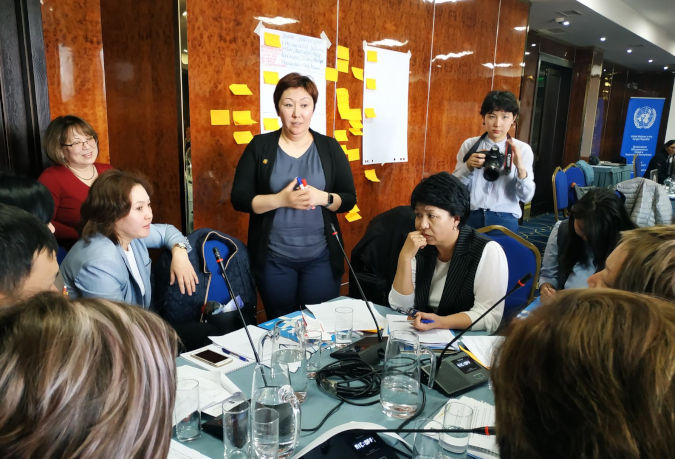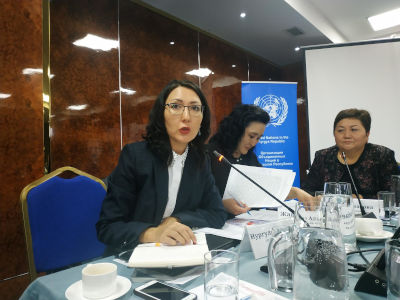Kyrgyzstan launches national review of progress on gender equality and the empowerment of women and girls
Date:

As Kyrgyzstan sees reversals in gender equality and women’s empowerment, the Government and the United Nations recently launched a national review of progress that will also identify new priorities for meeting the Beijing Declaration and Platform for Action as well as the 2030 Agenda commitments.
Twenty-five years ago, the Beijing Declaration and Platform for Action adopted at the Fourth World Conference on Women held in China determined a course of action for promoting gender equality and empowering women and girls. Its main goal is to remove all obstacles that women and girls face in actively participating in all spheres of public and private life by ensuring a full and equal share in economic, social, cultural and political decision-making. The Declaration and Platform for Action guide United Nations member states as they develop national strategies for gender equality.
“Twenty-five years ago, the UN member states made promises to their nations and the global community to eliminate gender inequality and gender-based discrimination and violence against women and girls. Much effort was made by Kyrgyzstan to fulfil this promise,” explains Nurgul Asylbekova, Officer-in-Charge for UN Women Country Office in Kyrgyzstan. “However, the problem of gender inequality remains and is complicated by new challenges, such as weak law enforcement, mass migration, poverty, climate change and the spread of radical attitudes and trends,” she said.

According to the National Statistics Committee, the level of women’s economic activity in 2017 fell to 45.9 per cent (compared with 75 per cent for men). And, despite high levels of education among women, their numbers in local councils has dropped with each election, reaching a record low of less than 10 per cent in 2016. The number of women deputies in the Kyrgyz Parliament is now 15 per cent, where the gender quota stipulated in the country’s Electoral Code requires a 30 per cent minimum.
At the same time, Kyrgyzstan maintains high maternal and child mortality rates, while Internal and external migration among women and children is growing. Alarming rates of violence and discrimination against women and girls is also prevalent, alongside the worst forms of child labour.
“It is necessary to look back and draw upon the lessons of the past for guidance moving forward, together. The sustainable and effective development of our country and the whole world is impossible without the active participation of women and girls in building a better, fairer and more secure world,” Asylbekova said.
Earlier this year, Kyrgyzstan, along with other United Nations member states, launched Beijing+25 national reviews. The goal is to assess how far government measures to promote gender equality and women's empowerment have come, and to identify new priorities in line with the Sustainable Development Goals.
As part of the review process, the Ministry of Labour and Social Development, with support from United Nations agencies (UN Women, UNICEF, UNDP and UNFPA), organized a series of consultations. Gender focal points from ministries and agencies attended these alongside representatives from civil society, the United Nations and other international organizations.
The reviews will be presented at regional and global meetings in 2019 and 2020 to celebrate the twenty-fifth anniversary of the Beijing Declaration and Platform for Action’s adoption, as well as the fifth anniversary of the 2030 Agenda for Sustainable Development.